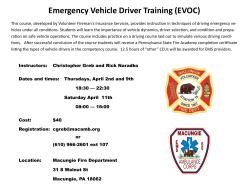
Danish companies testing methanol driven vehicle and
Danish companies testing methanol driven vehicle and infrastructure Hannover, April 13 2015 What will be tomorrow’s main vehicle technology in order to bring down the CO2 emissions and the general pollution from today’s conventional gasoline and diesel driven vehicles? The answer is not clear-cut, but Danish companies are collaborating on and testing a solution combining electric vehicle technology with a range extender based on fuel cells driven by methanol. This will reduce CO2 emissions by 66 % compared to a regular gasoline driven car. The technology and infrastructure will be on show at the Hannover Messe, 1317 April 2015. The prototype vehicle in question is a Fiat 500 configured with a battery pack and a methanol fuel cell range extender and thus effectively a plug-in hybrid electric vehicle with an initial battery-only range of 110 km. The integrated 5 kW reformed methanol fuel cell can add a further 500 kilometres range – even more with a larger tank, which does not cost more. Besides greatly extending the range of the vehicle and thereby eliminating any kind of so-called range anxiety for the user, the fuel cell also offers thermal energy for cabin comfort heating. The development is happening in the ‘Modular Energy Carrier concept’ project, which kicked off in 2013. Project Manager, Jens Christian Lodberg Høj from Insero E-Mobility, provides the latest status: - The Fiat 500 is the second vehicle equipped with the MECc system, and we have driven the first kilometres, which has shown that the system is working. Currently, we are removing bugs and testing all aspects of the system in order to have the prototype ready for fully functional testing by a professional user in the autumn of 2015. Fuel cell expert SerEnergy is developing the methanol fuel cells, while ECOmove has used its e-mobility engineering skills to make the necessary adjustments of the Fiat 500 in order to be compatible with the range extender. Insero E-Mobility has analysed the market potential and looked at go-to-market strategies. The infrastructure is easily adoptable Development work is also taking place concerning the related and necessary methanol infrastructure. The infrastructure, among others, is proving to be a challenge for a large-scale rollout of other sustainable transport technology solutions, but this is not the case in relation to methanol. Here, it is possible to make use of the existing fuel infrastructure, as methanol is also a liquid. The refuelling technology will thus be integrated directly into standard refuelling stations utilising current storage tanks and the basic structure of a multi-product station, which in turn secures fast refuelling of back-to-back vehicles during peak hours. Says commercial manager from SerEnergy, Mads Friis Jensen, who is involved in the infrastructure project: - The ‘Green Methanol Infrastructure’ (GMI) project was created to demonstrate a feasible and cost-effective infrastructure, which can deliver a fossil free Denmark in 2050. So far, the GMI project has analysed the demands and the technical requirements and developed the refuelling solution, which is currently in a certification process and will be demonstrated this summer in Aalborg, Denmark. OK a.m.b.a. distributes the methanol and operates the station, while Hamag is manufacturing the methanol refuelling station and SerEnergy is testing the fuel cell and methanol combination. This work is taking place in the GMI project – a “sister project” to the ‘Modular Energy Carrier concept’ project. The Energy Technology Development and Demonstration Programme (EUDP) supports both projects. CONTACT For further information about the Modular Energy Carrier concept (MECc): Project manager Jens Christian Lodberg Høj, Insero E-Mobility. E: jclh@insero.com / M: +45 4112 5558 Project website: www.mecc.dk For further information about the Green Methanol Infrastructure (GMI) project: Commercial manager Mads Friis Jensen, SerEnergy. E: mfj@serenergy.com / M: +45 2970 7488 Project website: www.greenmethanol.dk/en/
© Copyright 2025

















